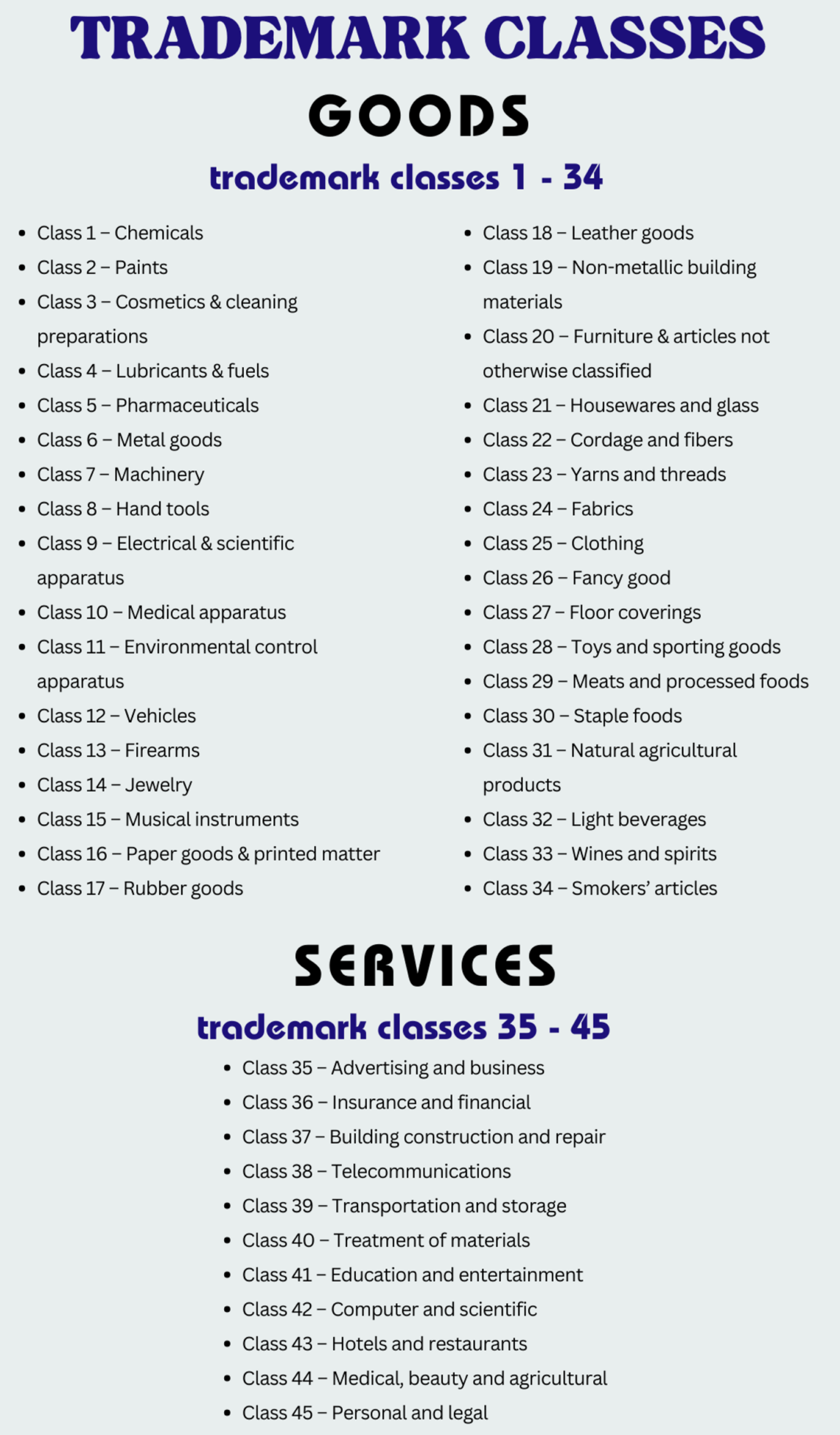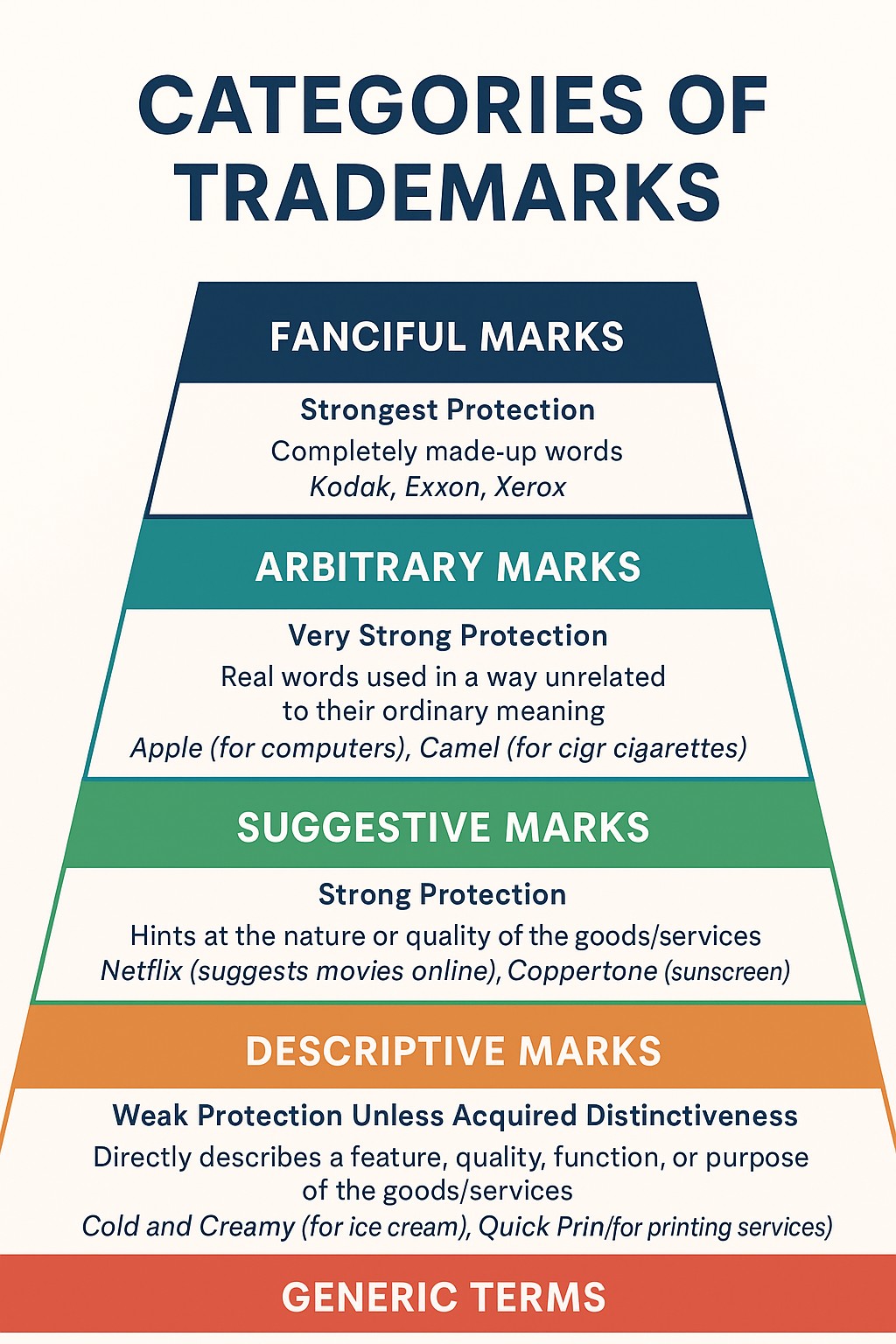The Nice Classification system stands as one of the most fundamental frameworks in international trademark law, yet many businesses and even some legal professionals struggle to navigate its complexities effectively. As trademark registration becomes increasingly global, understanding this system is not just helpful—it’s essential for protecting your brand across multiple…
Latest Posts
-
-
Understanding the Categories of Trademarks: A Practical Guide for Businesses
When building a brand, your trademark is more than just a logo or name—it’s the legal backbone of your brand identity. But not all trademarks are created equal. In fact, trademark law recognizes different categories, each with its own level of legal protection. If you’re starting a business or rebranding,…
-
Foreign Natural Persons Applying for Patents in China – (I) Basic Requirements for Foreign Natural Persons to Apply for Patents
1.1 Qualifications and Conditions for Applicants Foreign natural persons applying for patents in China must first clarify whether they are eligible to apply. According to the Patent Law of the People’s Republic of China and relevant regulations, the qualification of foreign natural persons to apply for Chinese patents is divided…
-
Comparison between the types of enterprises in US and China
Table 1: Detailed Explanation of Major U.S. Business Types Business Category Subtype Definition Core Characteristics Typical Use Cases Sole Proprietorship Sole Proprietorship A business form where an individual operates directly without a separate legal entity 1. No need to register as a legal entity; business activities are fully tied to…
-
Intellectual Property in Biopharmaceuticals: Balancing Innovation, Access, and Ethical Boundaries
The biopharmaceutical industry relies heavily on intellectual property (IP) to drive innovation, but it also faces intense scrutiny over how IP rights affect access to life-saving treatments. From gene patents to drug exclusivity periods, IP in biopharma is a battleground where corporate interests, patient advocacy, and ethical concerns collide. As…
-
Intellectual Property in AI: Navigating the Complexities of Machine Learning and Innovation
The rapid evolution of artificial intelligence (AI) has outpaced traditional intellectual property (IP) frameworks, creating a labyrinth of legal and ethical challenges. From patenting AI models to addressing copyright issues in training data, the AI sector grapples with unique questions that test the boundaries of existing IP laws. As AI…
-
Intellectual Property for Small and Medium Enterprises (SMEs): Overcoming Barriers to Success
Small and medium enterprises (SMEs) are the lifeblood of global economies, accounting for over 90% of businesses worldwide, yet many struggle to leverage intellectual property (IP) to their advantage. Limited resources, lack of expertise, and fear of legal costs often prevent SMEs from protecting their innovations, leaving them vulnerable to…
-
Intellectual Property in Emerging Technologies: Navigating Uncharted Territories
Emerging technologies such as artificial intelligence (AI), blockchain, and the metaverse are redefining the boundaries of innovation, but they also pose novel challenges to intellectual property (IP) frameworks worldwide. These technologies blur traditional lines between creators, owners, and users, demanding a reevaluation of how IP rights are defined, enforced, and…
-
Challenges in Protecting Intellectual Property in the Digital Age
The digital revolution has transformed how we create, share, and consume information, but it has also presented unprecedented challenges to intellectual property (IP) protection. The ease of digitizing content—whether a song, a movie, or a software program—has made unauthorized copying and distribution simpler than ever, undermining the value of creative…
-
The Role of Intellectual Property in Fostering Innovation
Intellectual property (IP) serves as the backbone of modern innovation, providing a legal framework to protect the creations of the human mind. In an era defined by rapid technological advancement and global competition, the significance of IP rights—encompassing patents, trademarks, copyrights, and trade secrets—has never been more pronounced. These legal…

